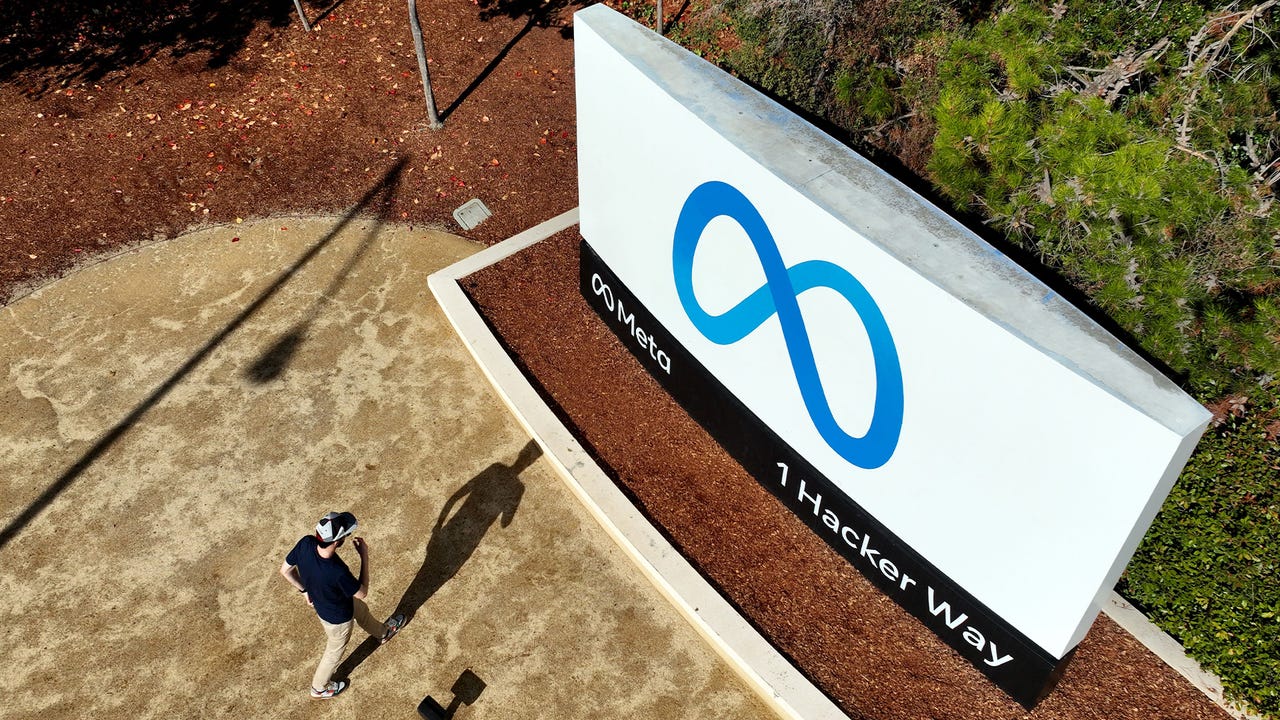































 Josh Edelson/AFP via Getty Images
Josh Edelson/AFP via Getty Images Meta, formerly known as Facebook, is set to release a commercial version of LLaMA, its open-source large language model (LLM) that uses artificial intelligence (AI) to generate text, images, and code.
LLaMA, which stands for Large Language Model Meta AI, was publicly announced in February as a small foundational model, and made available to researchers and academics.
Also: Want to build your own AI chatbot? Say hello to open-source HuggingChat
Now, the Financial Times is reporting that Meta is prepared to release the commercial version of the model, which would enable developers and businesses to build applications using the foundational model.
Since it's an open-source AI technology, commercial access to LLaMA gives businesses of all sizes the opportunity to adapt and improve the AI, accelerating technological innovation across various sectors and potentially leading to more robust models.
Meta's LLaMA is available in 7, 13, 33, and 65 billion parameters, compared to ChatGPT's LLM, GPT-3.5, which has been confirmed to have 175 billion parameters. OpenAI hasn't said how many parameters GPT-4 has, but it's estimated to have over 1 trillion parameters -- the more parameters, the better the model can understand input and generate appropriate output.
Also: Google Bard is stepping up its AI game with these new features
Currently, OpenAI leads the AI race, with ChatGPT as its sprinter, an AI chatbot that unleashed a generative AI revolution with its release in November. Microsoft has made hefty investments into OpenAI. The tech giant uses GPT-4 technology in the revamped, AI-powered Bing, and to power its Image Creator. Google has its own AI chatbot, Bard, and proprietary LLMs. None of these systems are open source.
Though open-source AI models already exist, launching Meta's LLaMA commercially is still a significant step, due to it being larger than many of the available open-source LLMs on the market, and the fact that it is from one of the biggest tech companies in the world.
Also: ChatGPT vs Bing vs Google Bard: Which is the best AI chatbot?
The launch means Meta is directly competing with Microsoft-backed OpenAI and Google, and that competition could mean significant advancements in the AI field. Closed or proprietary software, like that used in OpenAI's ChatGPT, has drawn criticism over transparency and security.
 Tags quentes :
Inteligência artificial
Inovação
Tags quentes :
Inteligência artificial
Inovação